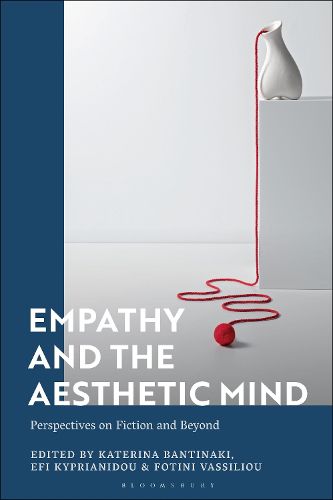Readings Newsletter
Become a Readings Member to make your shopping experience even easier.
Sign in or sign up for free!
You’re not far away from qualifying for FREE standard shipping within Australia
You’ve qualified for FREE standard shipping within Australia
The cart is loading…






Art is a constant point of reference for the exploration of the different manifestations of empathy and of its cognitive, affective and moral dimensions. Bringing together 15 essays from a team of established and rising philosophers, this volume sheds light on how both representational and non-representational forms of art allow empathic engagement. It examines the significance of such engagement for cognition, our emotive life and our moral stance.
Opening with a historical reconstruction of the origins of empathy, or 'Einfuehlung', in the German-speaking world from the late 19th to the early 20th century, the collection highlights the relevance of those early insights for current debates. Structured into four parts, chapters explore our emphatic engagement with fictional characters, with the inanimate in art forms such as film, music and architecture, with the cognitive value of empathy with fiction, and finally our emphatic response to fiction in relation to our moral attitudes. The contributors reflect on these specific themes and bring into sharp focus our emphatic engagement with works of art from historical, systematic and interdisciplinary perspectives.
$9.00 standard shipping within Australia
FREE standard shipping within Australia for orders over $100.00
Express & International shipping calculated at checkout
Art is a constant point of reference for the exploration of the different manifestations of empathy and of its cognitive, affective and moral dimensions. Bringing together 15 essays from a team of established and rising philosophers, this volume sheds light on how both representational and non-representational forms of art allow empathic engagement. It examines the significance of such engagement for cognition, our emotive life and our moral stance.
Opening with a historical reconstruction of the origins of empathy, or 'Einfuehlung', in the German-speaking world from the late 19th to the early 20th century, the collection highlights the relevance of those early insights for current debates. Structured into four parts, chapters explore our emphatic engagement with fictional characters, with the inanimate in art forms such as film, music and architecture, with the cognitive value of empathy with fiction, and finally our emphatic response to fiction in relation to our moral attitudes. The contributors reflect on these specific themes and bring into sharp focus our emphatic engagement with works of art from historical, systematic and interdisciplinary perspectives.